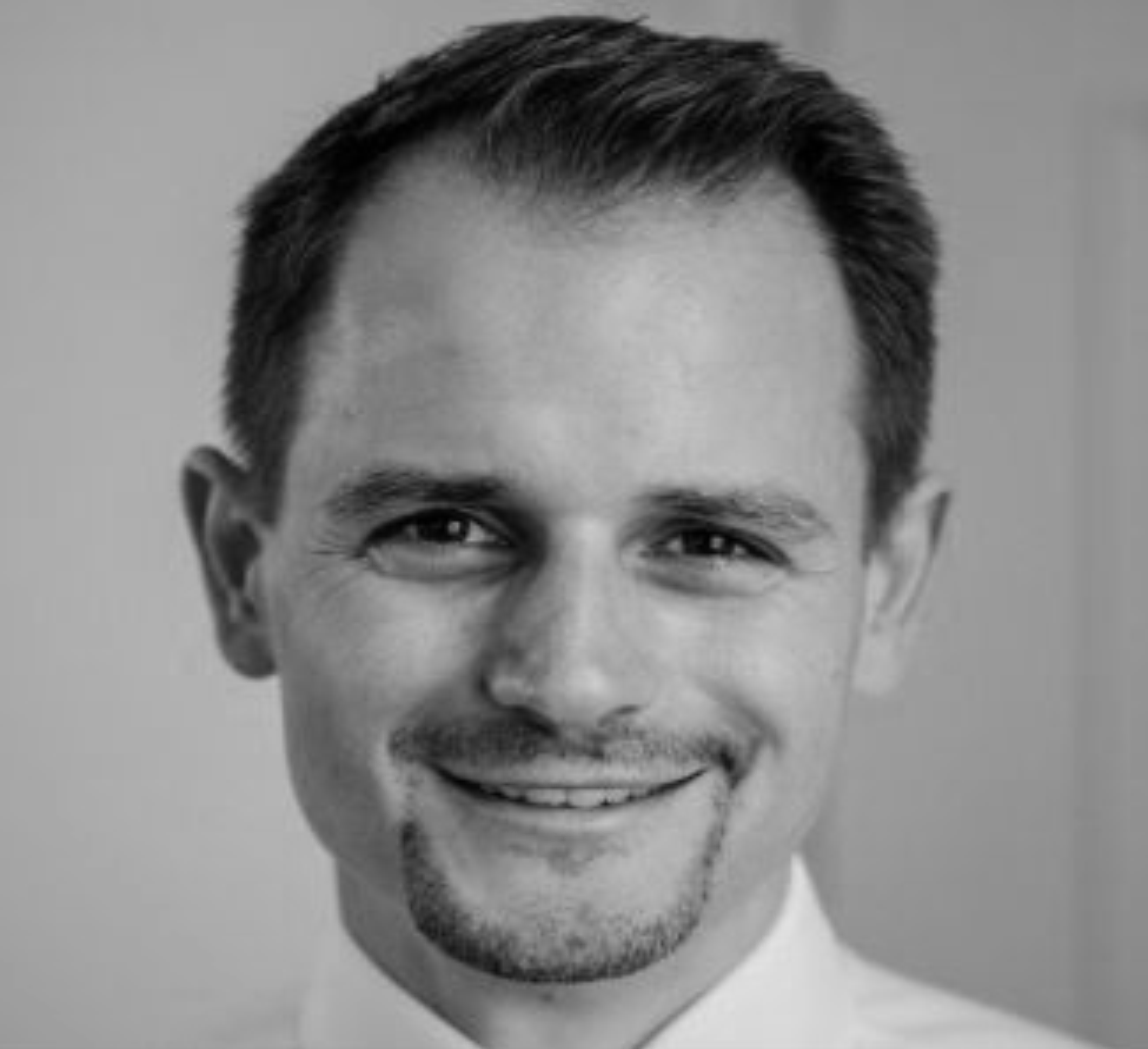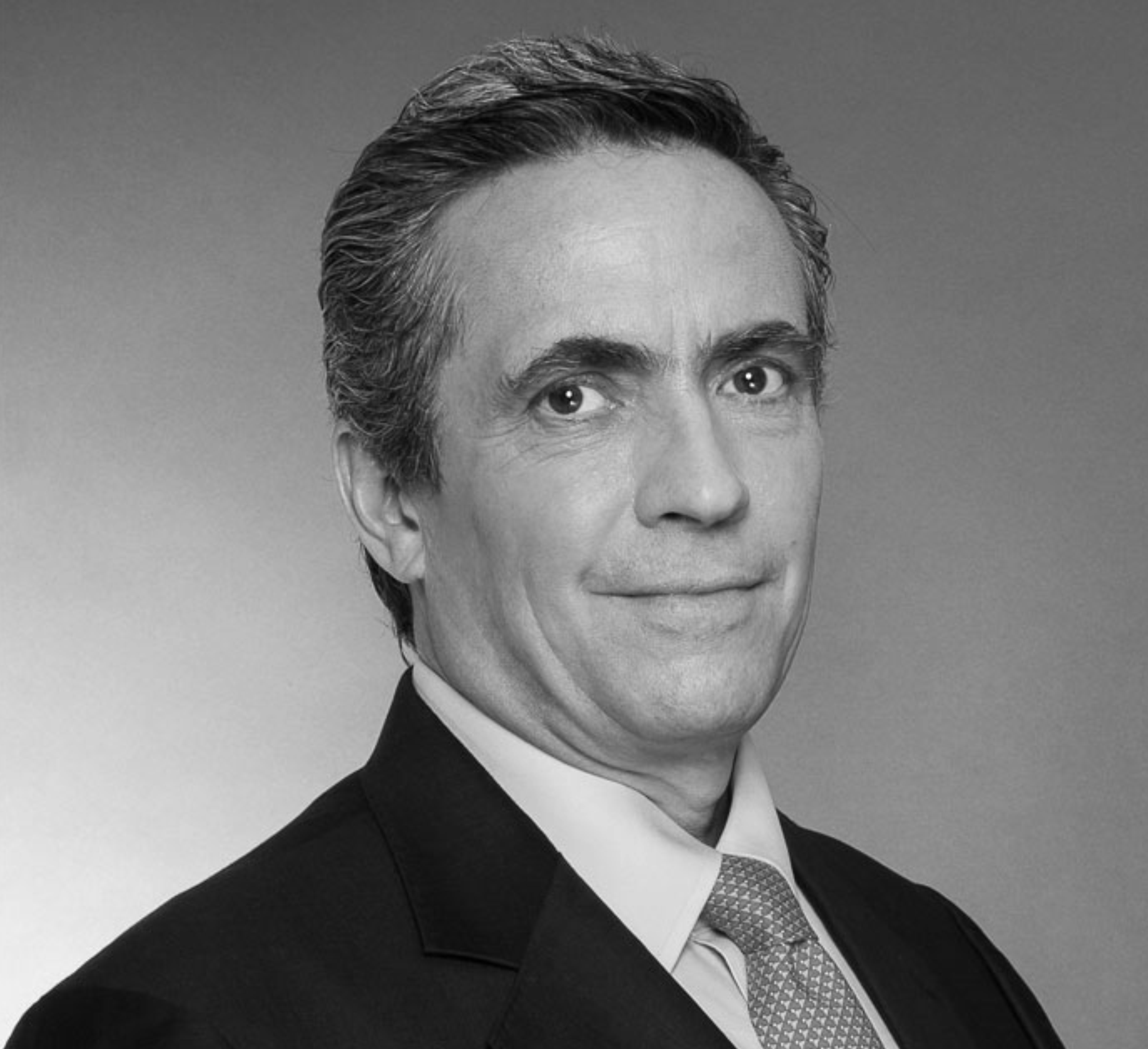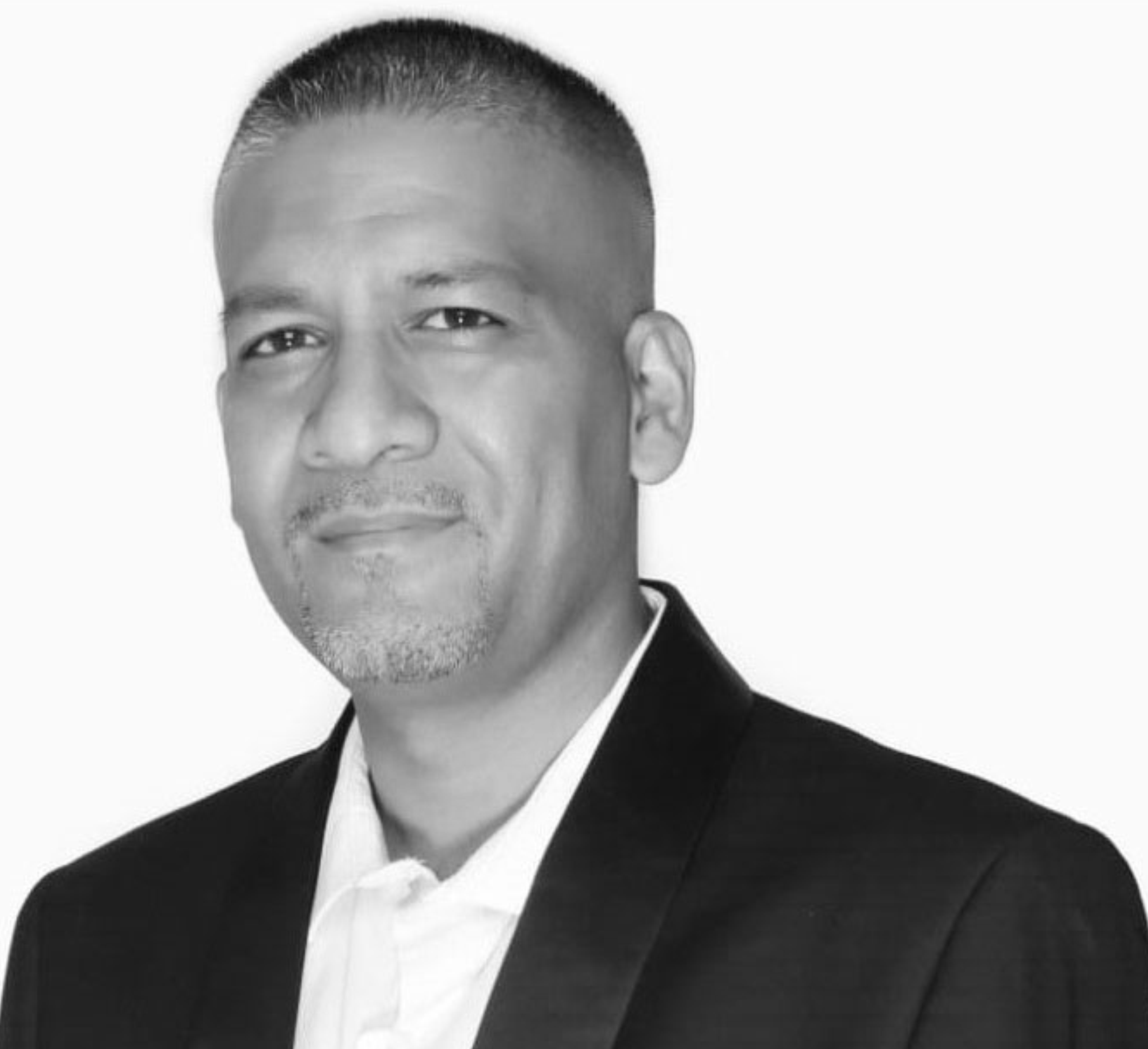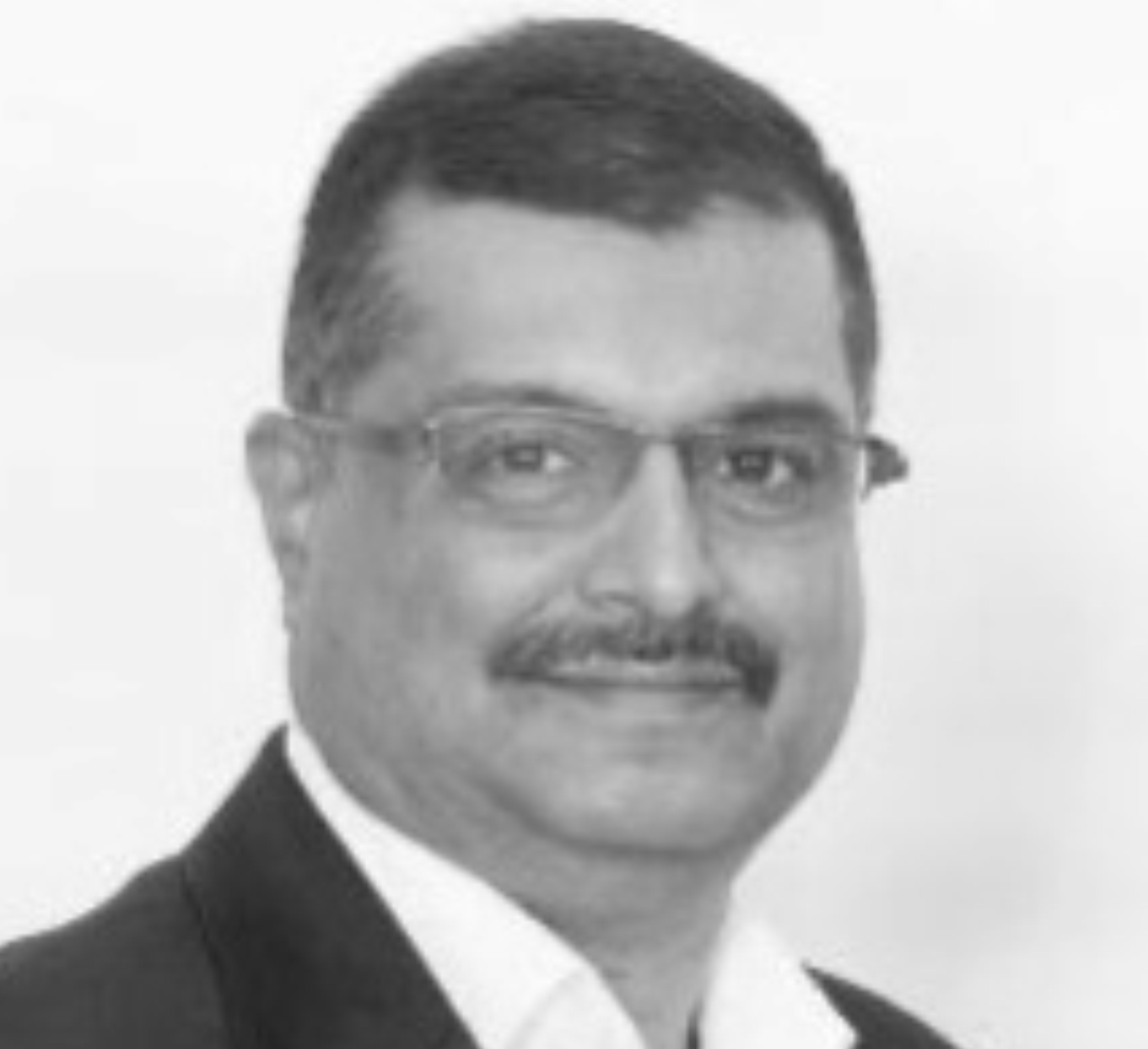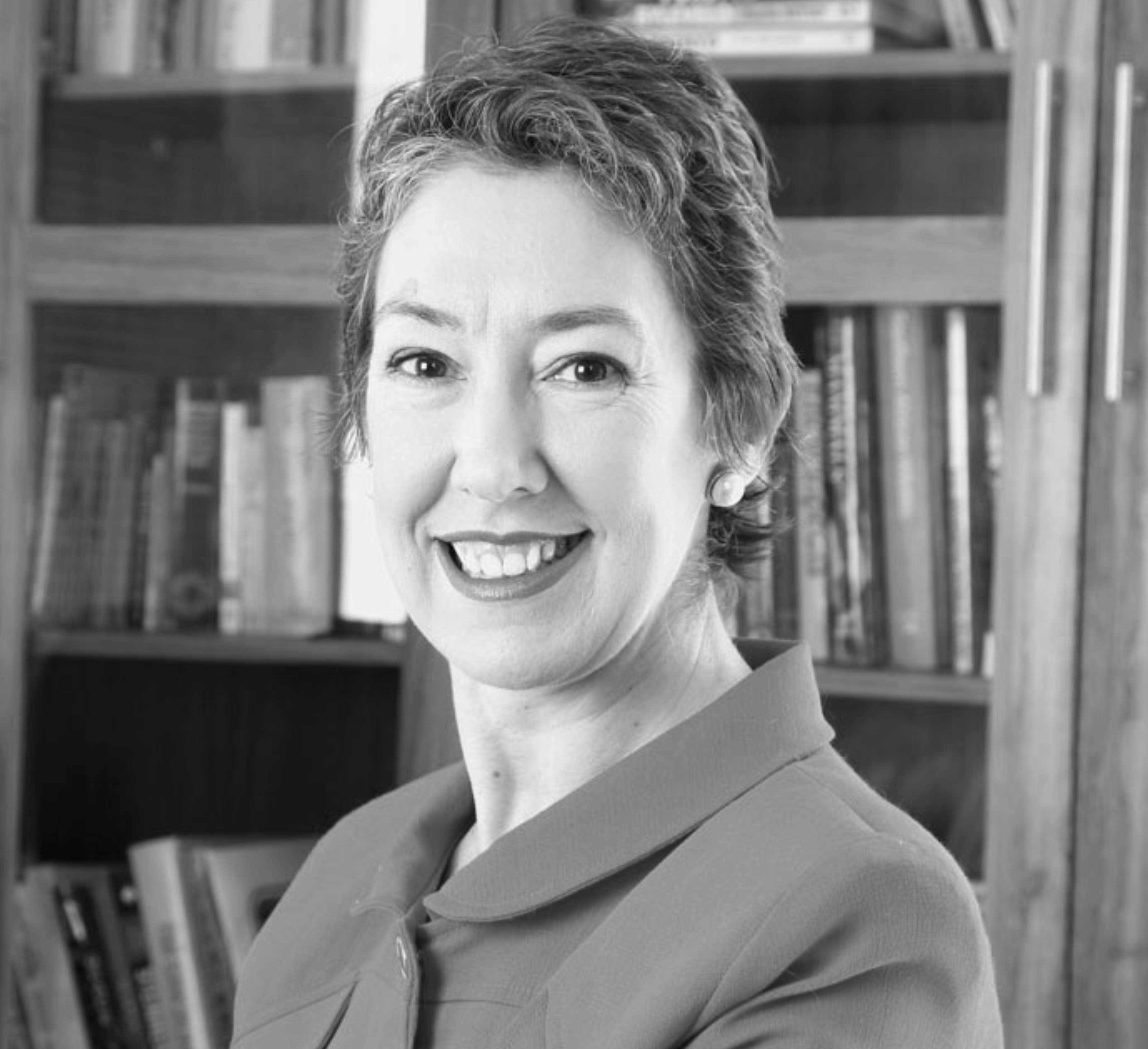164: Johannes Seefried
Johannes Seefried has spent the last decade in various positions within Hilti and now having relocated to Johannesburg, he’s focusing on merging his German experience with his new South African role.

Today’s podcast is sponsored by Draftworx, which provides automated drafting and working paper financial software to more than 8000 accounting and auditing firms and corporations. CFO Talks is a brand of the South African Institute of Business Accountants.
CIARAN RYAN: It’s my great pleasure today to welcome Johannes Seefried, who is CFO at Hilti South Africa, where his job includes setting the strategic direction for the Southern African region for Hilti. Before that, he was head of finance at Hilti in Germany, where the job involved steering the company’s activities in northern Germany and developing a strategy for about 600 salespeople, with a sales volume of €300 million a year. In fact, Johannes has spent the last decade in various positions within Hilti, most of that time in Germany. His academic career is extensive and quite interesting, he’s got a BSc from the University of Augsburg, specialising in finance and information. This was followed by an MBA from the University of Dayton, Ohio, in the United States, and a doctorate in performance management from the University of St Gallen. He’s also currently an associate professor in information management at Duale Hochschule Baden-Württemberg. Johannes, welcome and it’s good to have you on CFO Talks.
JOHANNES SEEFRIED: Thank you very much for the invitation, it’s a pleasure to be here. Duale Hochschule Baden-Württemberg is a private university in Germany where I am doing some lectures.
CIARAN RYAN: Is that close to where you were living because you’re now in Johannesburg but was that university quite close to where you were living?
JOHANNES SEEFRIED: Yes, it was just an hour’s drive, so basically, I could just drive there and have the lecture with the students in person, which is now not possible anymore but at least we are looking into some digital replacement that we could run a lecture via Teams or any other platform.
CIARAN RYAN: I see it’s in information management, which I think we’ll come to a little bit later but let’s just start off with your CV, it’s fantastic, it really is quite impressive, maybe just explain Hilti’s history in Southern Africa and what brought you here. Also, what does the company do?
JOHANNES SEEFRIED: I moved with my family to Johannesburg about a year ago and we really like it very much. Hilti South Africa is a subsidiary of the Hilti Group, which is based in Lichtenstein in Europe, it’s a very small country next to Switzerland and Austria. The Hilti Group was actually founded 80 years and a week ago by brothers Martin and Eugen Hilti in a small workshop in Lichtenstein. They were born in Lichtenstein and founded the company there. In the late 1950s, if I remember correctly, their breakthrough was the first power actuated tool in the whole world. Then in the ‘60s the invention of the first electric pneumatic hammer drill. It was a world sensation back at the time, the power and the durability of the tool was very much superior to what was sold on the market. At the time, Hilti had already expanded to 30 countries around the world. What is also special to Hilti, next to the quality and the innovation, where we differentiate ourselves from our competitors, is our direct customer relationship, which results in about 250 000 individual customer contacts each day worldwide. We have account managers who are out there every day, you’ve probably seen the red cars driving around, they’re supporting, consulting, coaching our customers on their job sites. We have 30 00 employees around the world and what Hilti strives for is just to make the construction business simpler, faster but also safer, which gets more and more important, while we bring our technologically leading products to our customer. But circling back to your question, I started in South Africa in April 2020, unfortunately only digitally, as we were not allowed to move due to Covid. We physically arrived half a year later, so only in November 2020.
CIARAN RYAN: So you arrived in the middle of the whole Covid pandemic, November wasn’t a particularly bad time but it is an odd time to be relocating to a new country.
JOHANNES SEEFRIED: Absolutely, we had discussions in early 2020 that we would move to South Africa, and we had also been here for a look and see but then we were not allowed to come because the numbers were peaking, and South Africa moved into a lockdown. Our visas were not processed, so there were a lot of hurdles that we had to tackle first and then there was one week in November where from both countries, from the German side and the South African side, opened their borders and we used this week to slip out and we arrived in South Africa.
CIARAN RYAN: You took the one-week window and relocated with your whole family, tell us about that, how many children have you got?
JOHANNES SEEFRIED: I’m happily married to a beautiful wife, and we have two children, we have a three-and-a-half-year-old girl and a three-month-old boy born in Johannesburg.
CIARAN RYAN: That’s fantastic, incredible, we’ll ask you some more about the personal side in a minute. I’m very interested in one thing that you mentioned about the first power actuated tool, are we talking about a drill, is it a hammer drill? So Hilti was the first in the world to come up with this?
JOHANNES SEEFRIED: It was an invention of Hilti, the electric pneumatic hammer drill, which decouples the chisel from the actual engine, which made it very robust, which brought big power gains and the durability of the tool was just superior to what was on the market. It was basically an invention which got patented, so this really was the breakthrough of Hilti.
‘On a global scale the Hilti Boy is sold the most here in South Africa.’
CIARAN RYAN: The name is not unfamiliar to me but I’m not a person who buys these things normally. So would you have a range of products, a range of power-driven tools, is that your primary business today?
JOHANNES SEEFRIED: Yes, it is, we diversified quite strongly within Hilti. The first thing when you think about Hilti, it’s this big red tool case, which is full of innovation, where every customer wants to have a look into it and see what’s inside if you show up on a construction site. Hilti runs it’s own R&D, we have specialists, scientists and engineers around the whole world, we do in house manufacturing in Europe, Mexico, US, China, India, but we also cooperate with universities and external specialist suppliers to deliver a very high standard. From a product perspective, if we stick with the product first, I guess what everybody knows is the Hilti Boy, it’s commonly known, when you want to hang up a picture frame, and if I am correct, on a global scale the Hilti Boy is sold the most here in South Africa.
CIARAN RYAN: Is that right, wow.
JOHANNES SEEFRIED: I was also quite surprised. So basically, most people know Hilti from the Hilti Boy. We are very much diversified, we do supply anchoring systems, whether it’s mechanical or chemical anchors, we have a cordless portfolio for cutting, sawing, grinding, screwing, measuring but we also do diamond coring and cutting with big machinery. We supply Firestop and we also do modular support systems, which is on the rise here in South Africa. But what Hilti is known for, next to the Hilti Boy, is really the drilling and demolition tools, where you see Hilti on the top side.
CIARAN RYAN: Okay, so the construction sector are big customers, the manufacturing sector, perhaps even mining in South Africa?
JOHANNES SEEFRIED: Absolutely, mining is also, especially the energy and industry field, is very much on the rise for us because with our specialised applications we can go out and support the mines. So that’s also a big part of the business for us, especially here in South Africa. This paired with the direct customer service is what makes Hilti unique. Hilti strongly believes in close and trusted relationships with customers. We run this [unclear] model that I have just mentioned, we go out to construction sites and consult with our customers, but those two paired is really what makes Hilti unique.
CIARAN RYAN: How long has the company been in South Africa and is this your headquarters for the Southern African region, it does seem that that is your responsibility, is the broader region.
JOHANNES SEEFRIED: Yes, the headquarters for what we call sub-region Southern Africa is based here in Johannesburg. We take care of Southern Africa, we do Namibia, we do Botswana, Zimbabwe, Madagascar, Zambia, Angola and some others that I forgot to mention. Then the northern part of Africa would then be covered out of Dubai, where our regional office sits for some other markets. How long has Hilti been in South Africa, that’s a good question, the Hilti Group is 80 years old on December 1, so we’ve just had our anniversary. South Africa I cannot tell you but this month we had two anniversaries of 25 years with Hilti in South Africa. So I would say at least 25 years old.
‘We were able to speak to CEOs and owners of the organisations, as they suddenly had time because their businesses were at a standstill as well.’
CIARAN RYAN: Talk about Covid, you’ve already given us this fascinating insight to how you got here, you took a one-week window to escape from Germany to South Africa. How have you been able to operate through Covid, do you work from the office, do you work remotely, how does that go?
JOHANNES SEEFRIED: It always depends on which lockdown level we are in, when Covid first hit and South Africa was moved to level 5 lockdown, we were still doing okay. Why do I say okay, we had a drop in net sales, that’s clear because our customers also didn’t work, but as we have a direct sales force implemented, we were still able to work from home. What we did at that point in time is we designed a timetable, like we had at school, where you split up the day into sessions. We had sessions dedicated to staying in touch with our customers on the phone and because of having such a good and direct relationship with them, we were able to speak to CEOs and owners of the organisations, as they suddenly had time because their businesses were at a standstill as well. So we were able to discuss partnerships on a strategic level, we were having reviews of what was good, what was bad, where do we need to improve but also looking forward on the agenda and how our partnership can develop in the future. This helped us quite a lot to restart later on because we had those leads, we had those opportunities defined. Next to those customer calls, we also had digital training sessions to educate our sales reps on products, services, offerings. Unfortunately, no hands-on training and at Hilti you really have to get your hands on the product but at least it was in the digital space.
We also rolled out a new customer management system, it was supposed to launch later that year, but we just pulled it up the timeline and started to work on that and train our employees on that. Basically, they had a full timetable but also like you have in school, we also had some time for breaks, we also had extensive coffee and lunch breaks because we knew everyone was staying at home and we wanted to give back to the employees and dedicate some free time to spend with their family. The whole family was at home, we understood it’s super easy to pull back fully from family life and dedicate eight hours consecutively, maybe work in one corner of the room, with the kids behind you, therefore, we also built-in breaks and spare time, which was much appreciated by our team members. All this helped us to restart quite well. I guess it’s not a secret that the top line goes down in those months where you have full lockdown but with direct customer contact, we were able to restart after the lockdown. Everybody was eager to go out and see the customers again with the new knowledge they had due to the opportunities and leads that were discussed and just to execute those.
CIARAN RYAN: Okay, good, just changing direction here, you’re a CFO but you come from a non-traditional background, you’ve got a BSc. It’s one of the things that we’ve noticed here on CFO Talks with a lot of people, particularly in Europe, I think more than half of CFOs in Europe come from a non-accounting background. Tell us a bit about yourself, where you were born, where did you go to school and how you ended up here, a little bit about your career path, please.
JOHANNES SEEFRIED: I was born and raised in Bavaria, in the southern part of Germany, in a small town of I would say only 20 000 habitants. I enjoyed my life there and the freedom I had in such a city, to freely roam around, riding my bike to school, meeting up with friends in the afternoon. I spent my time there until I finished high school at the age of 19. Then I went to the University of Augsburg, which is close to Munich, where I did my BSc. The majority of business administration studies in Germany result in a BSc, it’s just the German order or the European system, as you said. My focus back at the time was on accounting, controlling, mathematics but also IT and information management, which I lecture on today. The study in Germany, back at the time, was quite theoretical, I must say. Therefore, I decided back at the time to go for an MBA and I chose Dayton, Ohio, which I would say from a geographical point of view is not the most interesting location, at least if you compare it to my friends going to Florida or going to California, for example. But I was looking into more of a practical education, which I actually found at the University of Dayton, Ohio. The professors who were lecturing there had multiple mandates in big corporations and they basically could teach me life lessons. Some courses were consulting classes where we wrote a business plan for a start-up and we were looking for venture capital to fund that start-up or we worked on the redesign of a manufacturing plant to apply lean principles according to the Toyota way. So I would say that it was very much hands-on and a very good complement to my theoretical education that I received from Germany.
CIARAN RYAN: So you didn’t do this remotely, the MBA, you actually had to go and attend classes in Dayton, Ohio.
JOHANNES SEEFRIED: Yes, I relocated there for a year, and I’ve done the MBA, it was in 2009.
CIARAN RYAN: Continue from there, the MBA was about a decade ago, what happened then?
JOHANNES SEEFRIED: I had a short trip into consulting but then I onboarded with Hilti, and I moved into that interconnection of my studies, it was business administration with IT information management. So I took over a role, which is called process expert, it was in the southern part of Germany, where I was living at the time, and I was serving 17 entities around Germany, so it was Germany, Austria, Switzerland, Poland, all the surrounding countries we supported from that function. I have led various projects within finance and controlling broadly, for example, SAP rollouts, training for key users, but also troubleshooting. Two years later, I got promoted to a finance controller position, also for the central Europe region, being responsible for the whole region, and I was a business partner for the marketing department, I was developing financial tools for sales force [unclear], we reworked the compensation back at the time, so more like a controller job for regional.
Then some interesting sights, I went into the Hilti lab, which is not a laboratory as you imagine it, but it’s attached to the [unclear] of controlling and performance management at the University of St Gallen in Switzerland. What we have done there was a project for Hilti to develop the finance business partner function. At Hilti we call our CFOs or finance directors, we call them finance business partners. So I worked on the development of that, we developed the finance business partner function, so I started with an assessment, what is the function of a finance business partner, what is required from a finance business partner around the world. If you imagine a very mature market, where you are a finance business partner, having totally different responsibilities in a small country, where you are more of an accountant, I was researching that development step from an information provider that a finance director was in the past to really a pro-active coach of the business, a business partner.
I also wrote my dissertation about that at the Hilti lab before I went, again, back into Hilti, to the same head office I worked at before in the southern part of Germany, being responsible for the account payable function, audit to cash and treasury management. I did that for a year and then moved to the northern part of Germany to be the senior finance business partner there, which I did for three years, my responsibility, as you said in the intro, was mainly the steering of the finance for the Germany north region, where we had about 600 sales reps and specialists, quite a good sales volume. I did that for three years until September 2020, so I was overlapping South Africa and Germany back at that time before I moved into my current position as finance director for the sub-region here in Johannesburg.
‘You have to somehow check what fits, what does not fit, where is South Africa doing better, where is Germany doing better, so it’s mixing up the best of both worlds.’
CIARAN RYAN: A couple of quick-fire questions here for you, what would say are one or two of the more challenging assignments you’ve had to confront in your career, the more difficult ones.
JOHANNES SEEFRIED: I would say it’s reorganisation of the market organisation that we have here in South Africa, it’s one of the bigger challenges for me. Coming up with a strategic direction for a market organisation where the environment is very different to what I know from central Europe. How to make our global [unclear] that we have success in an organisation, which sales channels work, which do not work, what are the growth areas in South Africa. You mentioned the mining business, mining business does not exist in Germany, so for me it was new to understand what application we sell to the big mines, how we can help them to find solutions for what they are doing. In order to understand this, I am chatting a lot to the account managers and the leadership teams of the mines to understand better what they are doing on the one hand, and on the other hand how I can support growth in this environment. A second challenge is that on the one hand you’re working very much on strategy and supporting the reorganisation of the department, implementing compliant processes. Coming from a very well structured, and the Germans are known for that, very well structured and organised, coming into South Africa where I see that everything is a little bit more freestyle. Don’t get me wrong here, there’s nothing wrong with it but we somehow have to merge the best of the two worlds. This is also a challenge that I’m currently working on but I guess it works out fine, you cannot take your German process orientation and put it onto an organisation in South Africa but you have to somehow check what fits, what does not fit, where is South Africa doing better, where is Germany doing better, so it’s mixing up the best of both worlds, I would say.
CIARAN RYAN: That’s an interesting point that you make there, I think one of the things that I wanted to ask you when you were talking about your career path, there are certain things that you’re going to learn in a classroom about the accounting field or about being a senior finance executive and there are certain things you cannot learn. For example, the South African Institute of Business Accountants has a designation called CFO (SA), which is Certified Financial Officer, and that’s basically awarded to senior people in recognition of some of these skills, some of the softer skills that you acquire when you become a leader, and those would be things like communication, team management, strategy, things that are not easily learnt. Would you agree that they’re not easily learnt and that there are some things that you’re only going to pick up from experience?
JOHANNES SEEFRIED: 100%, I guess you need some experience also to be able to look back and to see where you learnt skills. In my opinion, and I can only speak for a German education and, as I have said, that was very theoretical. I had to do an MBA to get practical insight but then from time to time, the first time you lead a team you need this experience in order to be a good leader. A certain portion of it comes naturally but the other portion is just practicing and learning and getting into it to by just doing it and getting better at it. But I would definitely agree if you say that there are some competencies that you will not learn from after matric, going into university, doing a BSc and then being a full blown leader, it just doesn’t happen.
‘I know it’s not easy for the whole family to relocate, so I am trying to dedicate as much time as possible to the family.’
CIARAN RYAN: If you look back, and I don’t think you are anywhere near the end of your career as an accountant, I think you’re probably midstream perhaps, but looking back on it, what would you like your legacy to be?
JOHANNES SEEFRIED: I would say twofold, on the one hand I am passionate about achieving outstanding results and on the other hand, it’s developing people. For the outstanding results, I would say I want to support the organisation as best as possible and to sustain long-term profitable growth, and I am working on all ends of the organisation. On the other hand, developing people, I’m trying to coach and develop my team intensively. Next to the ongoing coaching that you have on a daily basis, we have also implemented dedicated feedback and coaching sessions throughout the year, where we review progress and align on the way forward, I guess that’s also very important. So if I had to sum it up it’s achieving results and developing people, and if this could stick, I would be very happy.
CIARAN RYAN: Okay, talk about what you do in your downtime, you’ve relocated from Germany, you’re in Midrand in Johannesburg, you’ve got two very young kids, what do you do in your downtime?
JOHANNES SEEFRIED: Exactly that, I know it’s not easy for the whole family to relocate, so I am trying to dedicate as much time as possible to the family. I try to still have breakfast with my family early in the morning and I try to have dinner with my family in the evening and I try to play with the kids as much as possible, as time allows. On the other side, I am also a sportsperson, I do a lot of sports but as South Africa always starts very early, I also decided to start early and I am sitting on my mountain bike at 5am in the morning, just to do an hour of cruise, and then I come back to the family and have a quick breakfast and then head off to the office or work from home recently. Basically, that’s it, we also want to discover the country, so on the weekend we go out into nature, we discover specific areas around Johannesburg and if we have holidays then we travel the greater South African region.
CIARAN RYAN: Wow, that’s a busy life. Are there any books that have inspired you?
JOHANNES SEEFRIED: To be honest, I am not a big book reader. I read a lot of news online, I read platforms like Business Insider but what I also do is listen to podcasts. There’s an interesting podcast called The High Performance Podcast with Jake Humphrey and Professor Damian Hughes and they teach you learning nuggets and lessons, for example, I listened to a podcast called How to Make a Dream Come True or How to Make a Leap from Being Good to Being Great, and those are short episodes that I sometimes listen to while doing a morning run. They are very inspirational because they do not only talk about successful CEOs and managers but rather to athletes, who achieve great results. You get some nice tips out of it, so I can definitely recommend it.
CIARAN RYAN: Deliver the products, deliver the results, yes. My final question to you is as a CFO are you are of the enhanced sustainable reporting requirements imposed by COP26, which I know is very new and a lot of people are still coming to terms with that. Is it something that you’re aware of and that you factor into your strategy at Hilti or not?
JOHANNES SEEFRIED: Definitely, globally, yes. Locally, I must say, that I heard about it in early November, and I like what they came up with, that we need standardised reporting for sustainability because right now everyone is just putting on their website whatever they like to do and I guess it’s a good idea to standardise it a little bit more. If I look at Hilti in terms of sustainability, we also have a sustainability strategy, which is divided into three clusters, the environment, people and society. For example, the environment, we are pursuing to be CO2 neutral by 2023 already. We also want to lead the industry in the area of circularity, which is also a big topic in South Africa, where we start to basically recycle old tools.
CIARAN RYAN: Fascinating, I would imagine with your European parentage there would be a lot of emphasis on reducing CO2 emissions and being leaders in the field. This is, of course, reputationally very important for a company like Hilti, I would imagine?
JOHANNES SEEFRIED: Absolutely, it’s a global company, we’ve got 30 000 employees, we contribute quite a lot and especially as we have a very close relationship with our customers. Also, the customers ask us what are we doing in terms of circularity, what are you doing in terms of sustainability. We also need to coach and educate our customers. For example, what we do for the environment, we are investing more and more into hybrid vehicles and battery-driven vehicles, mainly in central Europe, but it also swaps over to South Africa, so we’re also looking at hybrid vehicles here. On the people side, we place a big importance to keeping our employees and the customers safe, which is also part of sustainability. For the society, Hilti is quite engaged, we have what we call the Hilti Foundation, which supports global projects around the world in order to build a better future.
CIARAN RYAN: What a fascinating discussion, we’re going to leave it there. Johannes, thanks so much for coming onto CFO Talks and sharing your experience, both in Germany, your career, your life story, what you do in your downtime. I’m happy that Johannesburg is agreeable to you and that you’re getting out and you’re discovering the places. There are some fabulous places, as you have, no doubt, discovered within an hour or two of Johannesburg. Please stay in touch, I’d really like to get you back on again when things are a little bit more settled down perhaps and in the new year, let’s have you back on again.
JOHANNES SEEFRIED: Absolutely, it was amazing, thank you very much for the opportunity to chat. I had a good time, I enjoyed it very much and I definitely would like to come back.

